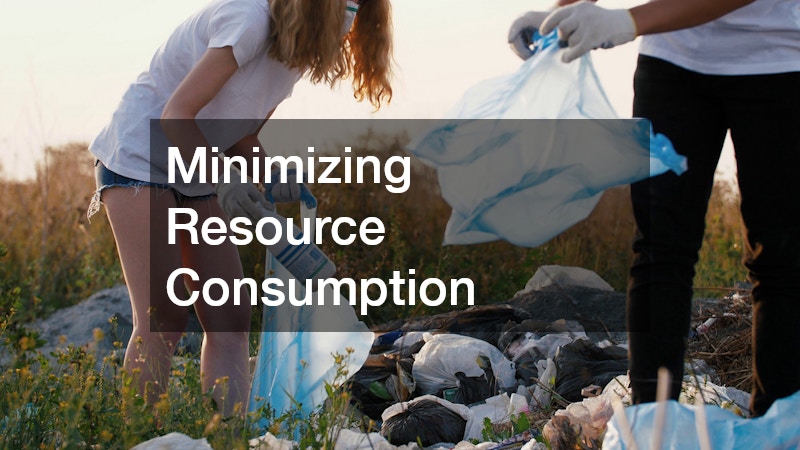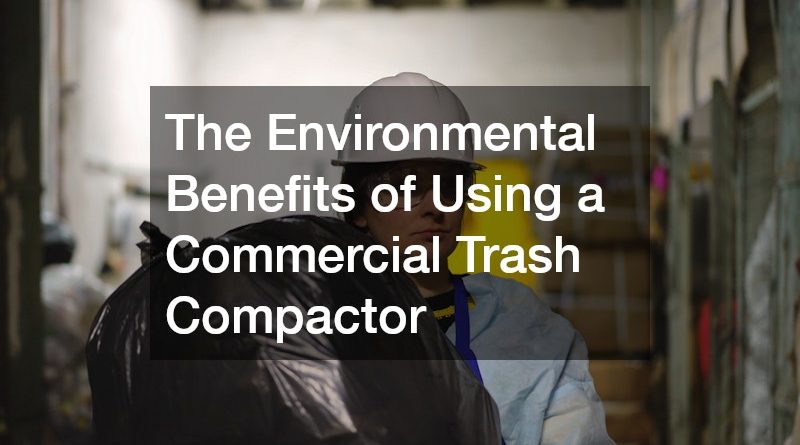The Environmental Benefits of Using a Commercial Trash Compactor
Businesses are under increasing pressure to adopt sustainable practices that reduce their environmental footprint. Waste management is a critical area where companies can make a tangible difference. One often-overlooked solution is the commercial trash compactor. While trash compactors are commonly associated with space-saving and cost-efficiency, they also offer significant environmental benefits. From reducing landfill waste to lowering greenhouse gas emissions, using a commercial trash compactor can help businesses achieve both economic and ecological goals.
Reducing Waste Volume
One of the most immediate environmental benefits of a commercial trash compactor is its ability to reduce the volume of waste. By compressing trash into smaller, denser units, businesses can significantly decrease the space that waste occupies. This reduction in volume has multiple environmental advantages.
For example, compacted trash requires fewer trips for collection and disposal. Garbage trucks consume fuel for every trip they make to transport waste, contributing to air pollution and carbon emissions. When trash is compacted, fewer trips are needed, directly reducing fuel consumption and greenhouse gas emissions. Additionally, reducing the volume of waste sent to landfills extends the lifespan of these sites, helping to mitigate one of the most pressing environmental challenges of our time.
Lowering Carbon Footprint
The reduced number of waste collection trips leads directly to a lower carbon footprint for businesses. Trash collection trucks typically run on diesel, a significant source of carbon dioxide (CO2) and other pollutants. Each trip to transport uncompacted waste contributes to the accumulation of greenhouse gases in the atmosphere. By compacting trash onsite, companies minimize the number of trips required, resulting in a measurable reduction in CO2 emissions.
Beyond transportation, compactors can also help reduce the overall energy required for waste management. Less frequent hauling means that fewer trucks are in operation at any given time, reducing the energy expended across the waste disposal system. Over the long term, this can contribute to meaningful reductions in a business’s overall environmental impact.
Promoting Recycling
Commercial trash compactors are not just for general waste—they can also facilitate recycling programs. Many modern compactors are designed to separate recyclables from other trash or to compress recyclable materials such as cardboard, plastic, and aluminum. By making it easier to manage recyclables, businesses are more likely to implement effective recycling practices.
Recycling helps conserve natural resources, reduce energy consumption, and minimize pollution. For example, recycling aluminum saves up to 95% of the energy required to produce new aluminum from raw materials. Similarly, recycling paper reduces the demand for virgin wood pulp, saving trees and preserving ecosystems. Using a commercial trash compactor to organize and compress recyclables enhances the efficiency of recycling programs, making environmental stewardship simpler and more practical.
Reducing Landfill Leachate and Methane Emissions
When trash is left loose in landfills, it can generate leachate—a toxic liquid formed when rainwater filters through waste. Leachate can contaminate groundwater and soil, posing significant environmental hazards. Additionally, organic waste in landfills decomposes anaerobically, producing methane, a potent greenhouse gas that is roughly 25 times more effective at trapping heat in the atmosphere than carbon dioxide.
Commercial trash compactors help mitigate these issues by compressing waste and reducing the amount of organic material sent to landfills. Compacting trash also reduces air pockets in waste containers, which can slow down the decomposition process and minimize methane production. While compactors do not eliminate landfill emissions entirely, they reduce the volume of waste contributing to these environmental problems, making them a valuable tool for responsible waste management.

Minimizing Resource Consumption
The benefits of using a commercial trash compactor extend beyond emissions. Compactors reduce the need for disposable trash bags, liners, and additional storage containers. When waste is compressed, fewer bags are required, which means less plastic is produced, used, and discarded. Reducing plastic consumption is a critical step toward protecting ecosystems, particularly oceans and waterways where plastic pollution is a severe issue.
In addition, compactors help optimize waste storage space in commercial facilities. Businesses that manage trash efficiently need fewer dumpsters and storage bins, conserving materials and reducing manufacturing demand. The cumulative effect is a reduction in the consumption of resources used to produce these items, further decreasing the environmental footprint of waste management.
Supporting Sustainable Business Practices
Modern consumers and clients are increasingly drawn to businesses that demonstrate environmental responsibility. By adopting commercial trash compactors, companies can showcase their commitment to sustainability while enjoying the operational benefits of cleaner, more organized waste management. This aligns with broader corporate social responsibility (CSR) initiatives and can even improve a company’s brand reputation.
In addition to environmental advantages, using compactors can also result in financial savings. Reduced waste volume, fewer trash pickups, and lower consumption of disposal materials translate into cost reductions. In other words, environmentally conscious waste management practices can go hand-in-hand with better bottom-line performance.
Enhancing Employee Awareness and Engagement
Using a commercial trash compactor can also encourage employees to be more mindful of waste generation and disposal. Clear guidelines for what materials are recyclable versus general waste, along with visible, efficient compaction systems, make it easier for staff to follow best practices. This promotes a culture of sustainability within the workplace, extending the benefits of waste reduction beyond the immediate environmental impact.
Employees who understand the environmental benefits of compacting trash are more likely to support other green initiatives, such as reducing energy usage, conserving water, or minimizing single-use plastics. In this way, a simple tool like a commercial trash compactor can have far-reaching effects on a company’s overall sustainability strategy.
Commercial trash compactors offer more than just convenience and space-saving advantages—they are a powerful tool for reducing environmental impact. By compressing waste, lowering carbon emissions, facilitating recycling, and minimizing resource consumption, compactors help businesses manage their waste responsibly and sustainably. In an era where sustainability is both a corporate responsibility and a public expectation, investing in a commercial trash compactor is a practical and impactful step. Not only does it help protect the environment by reducing landfill contributions, greenhouse gas emissions, and plastic usage, but it also supports efficient operations, cost savings, and employee engagement in sustainable practices.
